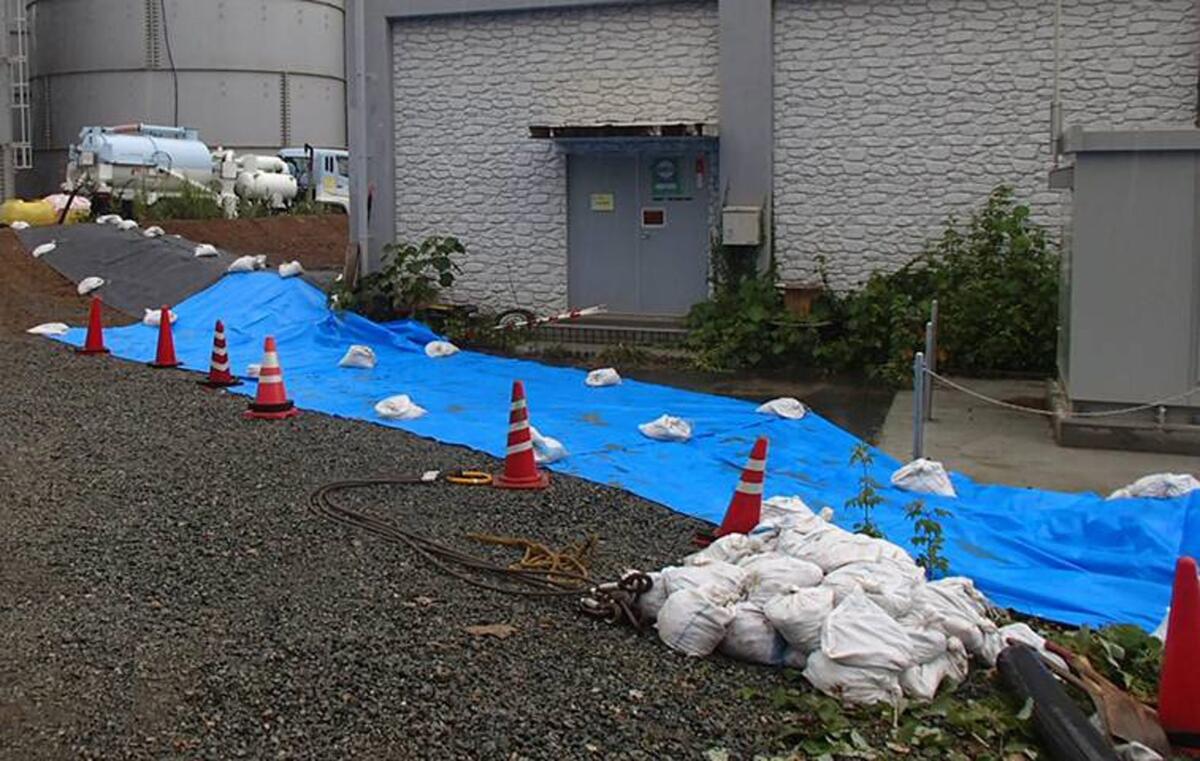Japan may upgrade severity of Fukushima radioactive water leak

TOKYO -- Japan’s Nuclear Regulation Authority is considering a heightened “serious incident” designation for the leakage of 300 tons of highly radioactive water at the tsunami-damaged nuclear plant at Fukushima.
The country’s nuclear regulator earlier this week classified the spillage from a storage tank as a Level 1 incident, the second-lowest designation for nuclear accidents as classified by the International Atomic Energy Agency.
But serious concerns over the leakage discovered Monday are causing the agency to consider raising the classification to Level 3, or a “serious incident,” based on the concentration of radioactivity in the water and the size of the leak.
The meltdown at the Fukushima Daiichi nuclear power plant, triggered by a March 11, 2011, earthquake and tsunami, has been rated a Level 7 “major accident,” the world’s worst nuclear disaster since Chernobyl.
Masakazu Shima, head of the accident response office at the Nuclear Regulation Authority, said his organization was in the process of confirming with the IAEA if the storage-tank leakage should be handled as a separate incident, because the tanks have been an emergency measure to help deal with the aftermath of the original Level 7 accident.
During a Nuclear Regulation Authority meeting Wednesday, commissioner Toyoshi Fuketa said he was alarmed by how Tokyo Electric Power Company, or TEPCO, may have been monitoring the storage tanks.
“TEPCO claims they have been patrolling the facility twice a day, but it is hard to believe that a leak of 300 tons of water was not detected a day earlier,” Fuketa said. “That is an amount of a full pool of water that leaked in 12 hours. Something is wrong.”
Yo Koshimizu, a spokesperson for TEPCO, said the tanks have been visually checked on. “Patrol times have been twice a day but not necessarily spaced out to an even 12 hours,” Koshimizu said.
Takao Kashiwagi, a mechanical engineering professor at the Tokyo Institute of Technology, said “the Japanese government needs to step in and pour in more resources in the form of taxpayer’s money to resolve this severe accident.”
The tank leak illustrates that the plant’s problems are no longer on a scale of something a cash-strapped private company can handle, Kashiwagi said.
An official of the watchdog organization affiliated with the Ministry of Environment said the Nuclear Regulation Authority has been advising TEPCO on how to proceed.
“The Nuclear Regulation Authority is like an umpire in a baseball game,” said Shinji Kinjo, director of the Office for Accident Measures of Fukushima Daiichi Nuclear Power Station in the Secretariat of Nuclear Regulation Authority.
“We don’t usually get involved with players -- in this case that would be TEPCO -- or the coach, which would be the Ministry of Economy, Trade and Industry,” Kinjo said.
However, he said, this has been a critical situation and the Nuclear Regulation Authority has been instructing TEPCO on measures that need to be taken.
ALSO:
Syria rebels say scores dead in poison-gas attack
Egyptian court orders Mubarak’s release from prison
Britain defends detaining the partner of Edward Snowden journalist
Nagano is a Tokyo-based special correspondent.
More to Read
Sign up for Essential California
The most important California stories and recommendations in your inbox every morning.
You may occasionally receive promotional content from the Los Angeles Times.










